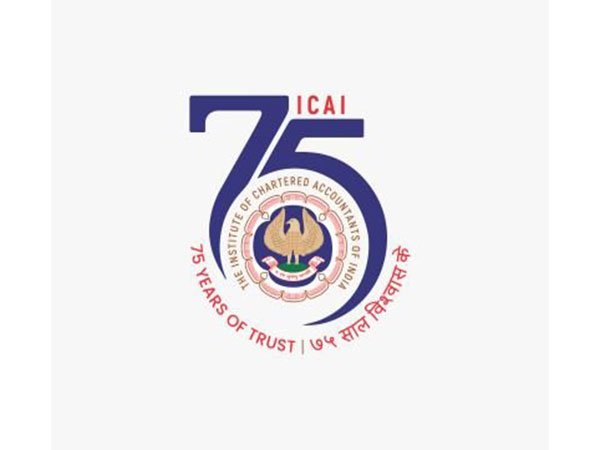
Is the Modern Workplace Built for Efficiency, Not Happiness?
By Tsifodze ERNEST
In our current era, happiness has emerged as an essential component of overall wellness. Economists often highlight the Gross Domestic Product (GDP) when assessing how well a country is performing.
The GDP index assesses the overall condition and scale of an economy by taking into account the cumulative worth of all final products and services generated within a nation over a certain timeframe.
This is similar to what employers anticipate regarding worker productivity in the office setting. The ability of employees to meet targets and objectives efficiently ensures that the lifeblood of the business remains strong.
In today’s fiercely competitive work environment, establishing KPIs (Key Performance Indicators) which depend on the time, resources, and efforts of staff to generate outcomes, goods, and services frequently overlooks the well-being aspect of these employees.
Nevertheless, the query persists: Why is there minimal focus on Gross Happiness Product (GHP) within work environments, private spaces, or across numerous nations? Since 1972, Bhutan has demonstrated that Gross National Happiness (GNH) stands as a reliable approach toward enhancing the welfare and contentment of its populace.
The capacity to emphasize GNH (Gross National Happiness) above mere economic indicators like GDP (Gross Domestic Product) motivated the United Nations’ 2011 resolution that declared happiness as a key developmental objective. This led to the creation of the World Happiness Report starting in 2012, which continues up until now, along with the establishment of the International Day of Happiness observed annually on March 20th.
A research conducted by the University of Warwick and released in 2024 demonstrates that happier subjects exhibited a productivity boost of 12 percent when some resources were allocated towards enhancing employee well-being through gestures like providing small gifts or sharing humorous video clips with them.
When unhappy participants were questioned about their recent misfortunes, they showed a productivity decrease of 10 percent. The study involved more than 700 individuals.
People over profit?
Assessing happiness is quite challenging. Within our limited sphere, we associate happiness with different factors such as acquiring the most recent technology devices.
For certain individuals, it revolves around the amount they possess in their bank accounts. Occasionally, it might be attributed to possessing excellent health. To some people, it signifies an extravagant lifestyle, whereas, for others, it represents the serenity of their surroundings.
Today’s business environment functions within various frameworks. Often, what is referred to as “performance incentives” is mistakenly seen as a means to achieve contentment. Ponder a scenario where corporate boardrooms do not equate the “end-of-year bonus” with genuine happiness.
Envision “Having Fridays off to work remotely,” what if we suggest “Taking a mental health day on Mondays” instead? Additionally, consider implementing a “joy stipend” for employees to use on meals or small treats. This approach would likely enhance their motivation and overall well-being at work even further.
But will capitalism permit that?
Capitalism is fundamentally structured around high performance, leading to a work culture where numerous individuals experience exhaustion and burnout.
This issue becomes more pronounced in an intensely competitive environment where social connections tend to weaken. It’s safe to say this fosters anxiety and depression.
Nevertheless, well-being flourishes when an effective social safety net is established to address workers’ welfare. As humans are inherently social beings, we require robust social connections to flourish.
Based on World Bank Data from 2022, workers in the informal sector of developing nations dedicate between 50 to 70 hours per week to various jobs out of financial need.
Once more, according to the International Labour Organization (ILO) data from 2023, which encompasses information from more than 187 nations, it indicates that employees dedicate approximately 33-40 percent of their full 24-hour day to work activities, equating to around 8-10 hours daily.
In this scenario, the architecture and regulatory environment shaping our workspaces are crucial for the general welfare of individuals.
However, does the Human Resources Management team address this complex situation?
The Human Resource Management Team has the potential to foster communication via numerous programs and regulations.
Certain companies allow employees to exchange vacation days for additional compensation. In contrast, some employers mandate that staff members use their allotted time off regardless of personal preferences.
Frequently, a small nudge in the correct direction can significantly aid the welfare of employees.
Picturing wellness initiatives, providing accessible tools to aid employees, arranging educational sessions to inform staff about their well-being requirements, and advocating for a more inclusive atmosphere where workers sense they are noticed, acknowledged, and valued.
The Human Resource Management team needs to move away from reducing expenses solely for profit margins and instead focus on enhancing employees’ well-being to boost overall productivity. However, does this responsibility lie only with the HR department? Or do individual contributions play a key role in this discussion? Absolutely yes.
Initially, we need to recognize that we are ‘human beings,’ rather than ‘human doings.’ People ought to value rest, retreats, and breaks whenever they sense something amiss with their physical condition. Joy and wellness go hand in hand; both well-being and contentment are choices.
However, to ensure a wise choice for your well-being, prioritize being present over focusing solely on your work output.
The advancement you aspire to achieve, along with the salary increase and the ideal home you wish to purchase. While these goals might seem appealing, also think about taking a stroll, treating yourself to some ice cream, spending quality time with your children, reconnecting with an old acquaintance, relishing your leisurely Sundays, dedicating time to a worthy cause through volunteer work, and making sure to take moments to unwind and get adequate rest. These activities come at no expense. True happiness does not stem from outward achievements but rather from within.
For example, consumerism has repeatedly shown that owning many items does not necessarily lead to happiness.
It’s akin to a child showering another child with numerous toys, only to find that it doesn’t compare to the comfort of being held by their parents. Similarly, pursuing wealth or laboring solely for financial gain offers minimal happiness.
The objective in life is to discover harmony. Being grounded within oneself and internally consistent allows one to acknowledge the disorder surrounding us, setting individuals apart.
The capacity for an individual to “BE” through experiencing safety, authenticity, and self-recognition (self-awareness). Synchronizing their internal compass rather than external metrics profoundly shapes how they engage with their job.
Rather than exerting effort today to earn money only to spend that money on health issues later, it’s crucial to strike a balance between well-being and employment. Keep in mind that in a society fixated on rapidity and success, taking things slow can seem like a sign of frailty.
However, this can also become an asset as it provides room for breathing, introspection, and renewal, allowing us to begin anew. Slowing down doesn’t mean lagging behind; rather, it ensures we progress in the correct direction. Within silence lies our clearest vision, greatest toughness, and deepest insight into crafting lives that resonate with our authentic selves.
Life isn’t a competition.
>>>
The individual behind Nalike Africa, an accomplished leader in facilitation and publishing (“Life Beyond the Ordinary” and “Minerals for the Mind”), also serves as a mentor for startups and advises boards. This person is an alum of both Anant National University in India and Kwame Nkrumah University of Science and Technology in Ghana. Furthermore, they completed a certificate course at Harvard Business School titled “Power and Influence for Positive Impact.” For further communication, you may reach out through their available channels.
tsifodzekwadzo@gmail.com
Provided by Syndigate Media Inc. (
Syndigate.info
).
Share this content:



















Post Comment